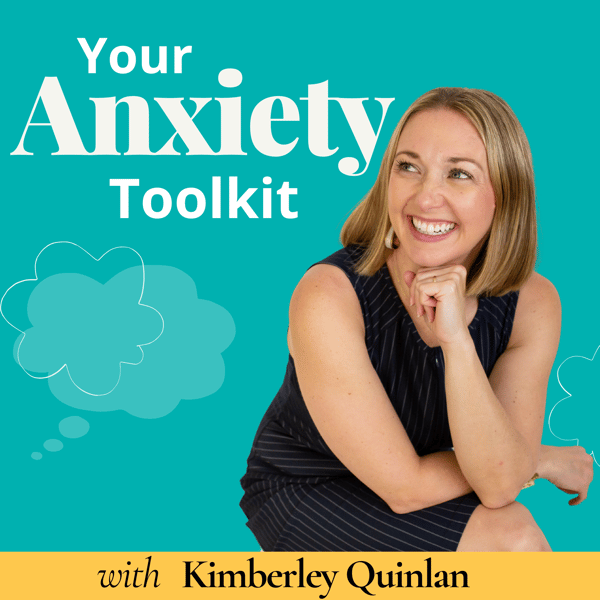406 How to Stop the Downward Spiral of Depression Before It Takes Over
Your Anxiety Toolkit - Anxiety & OCD Strategies for Everyday
Kimberley Quinlan, LMFT | Anxiety & OCD Specialist
4.9 • 802 Ratings
🗓️ 21 October 2024
⏱️ 15 minutes
🧾️ Download transcript
Summary
Transcript
Click on a timestamp to play from that location
| 0:00.0 | Hello everybody and welcome to your anxiety toolkit. My name is Kimberly Quinlan. Hello. I am an |
| 0:11.0 | anxiety specialist. I'm licensed in the state of California and you're listening to Your Anxiety |
| 0:16.9 | Toolkit. This is where you are going to learn exactly how to manage and overcome anxiety and |
| 0:23.4 | depression using the same science-based compassion-focused strategies and tools that I use with my |
| 0:31.6 | one-on-one clients. Today we're tackling a tough but important topic how to stop the downward spiral of depression before it takes over. |
| 0:44.6 | I'll never forget a time early in my career when I worked with a client who described depression as sinking in quicksand. They felt like every negative thought and every |
| 0:58.6 | decision to avoid something they used to enjoy just pull them deeper and deeper into that dark, |
| 1:07.3 | heavy feeling. What really struck me was the way they described hopelessness. And I'm sure you |
| 1:15.2 | understand. They felt completely powerless to get out of this cycle. And what struck with me and |
| 1:22.4 | really sat with me, and I know many of you can relate, is that exact feeling. But here's the thing. Even when it feels like |
| 1:30.4 | you're being pulled down, there are ways to stop the downward spiral of depression. And today, |
| 1:37.9 | I'm going to walk you through specific strategies that reduce depressive rumination and also reduce self-criticism. |
| 1:46.8 | So let's dive into this. |
| 1:49.1 | One way we can understand depression is by thinking of it as a cycle. |
| 1:56.3 | Not as just one symptom or a feeling because depression is usually a series of events that feed off of |
| 2:03.5 | each other keeping you trapped. For example, feeling sad or unmotivated can then lead to |
| 2:11.3 | avoiding responsibilities or withdrawing from activities, which then makes you feel guilty or more hopeless. |
| 2:19.2 | But as you know, negative self-critical thoughts also make us fall into this deep depression |
| 2:25.9 | and further down that downward spiral. |
| 2:28.9 | Thoughts like, I'm a failure or I'll never get better or I'm a burden to everyone I know feed into this cycle |
| 2:36.8 | and make you feel even more ineffective and unmotivated. Each behavior or thought can spiral |
| 2:45.8 | into another, worsening your depression. But the good news is that we can intervene at any part of |
... |
Please login to see the full transcript.
Disclaimer: The podcast and artwork embedded on this page are from Kimberley Quinlan, LMFT | Anxiety & OCD Specialist, and are the property of its owner and not affiliated with or endorsed by Tapesearch.
Generated transcripts are the property of Kimberley Quinlan, LMFT | Anxiety & OCD Specialist and are distributed freely under the Fair Use doctrine. Transcripts generated by Tapesearch are not guaranteed to be accurate.
Copyright © Tapesearch 2025.

